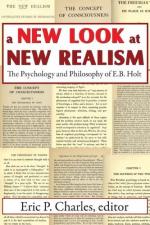|
This section contains 4,376 words (approx. 15 pages at 300 words per page) |

|
"New Realism" arose at the turn of the twentieth century in opposition to the Idealist doctrines that the known or perceived object is dependent for its existence on the act of knowing and that the immediately perceived object is a state of the perceiving mind. The Austrian philosophers Franz Brentano and Alexius Meinong first enunciated the cardinal tenet of this new realism: that what the mind knows or perceives exists independently of the acts of knowing and perceiving. Developing mainly as a polemic against Idealism, this new realism was represented prior to 1900 in England in the works of such men as John Cook Wilson, Thomas Case, H. W. B. Joseph, and H. A. Prichard. Similar realist polemics were taking place in Sweden and Italy.
In America the movement known as New Realism dates from the critical writings of William P. Montague and Ralph Barton Perry in...
|
This section contains 4,376 words (approx. 15 pages at 300 words per page) |

|


